Sailing to the Malay Peninsula: three universities forge bonds through cultural exchange
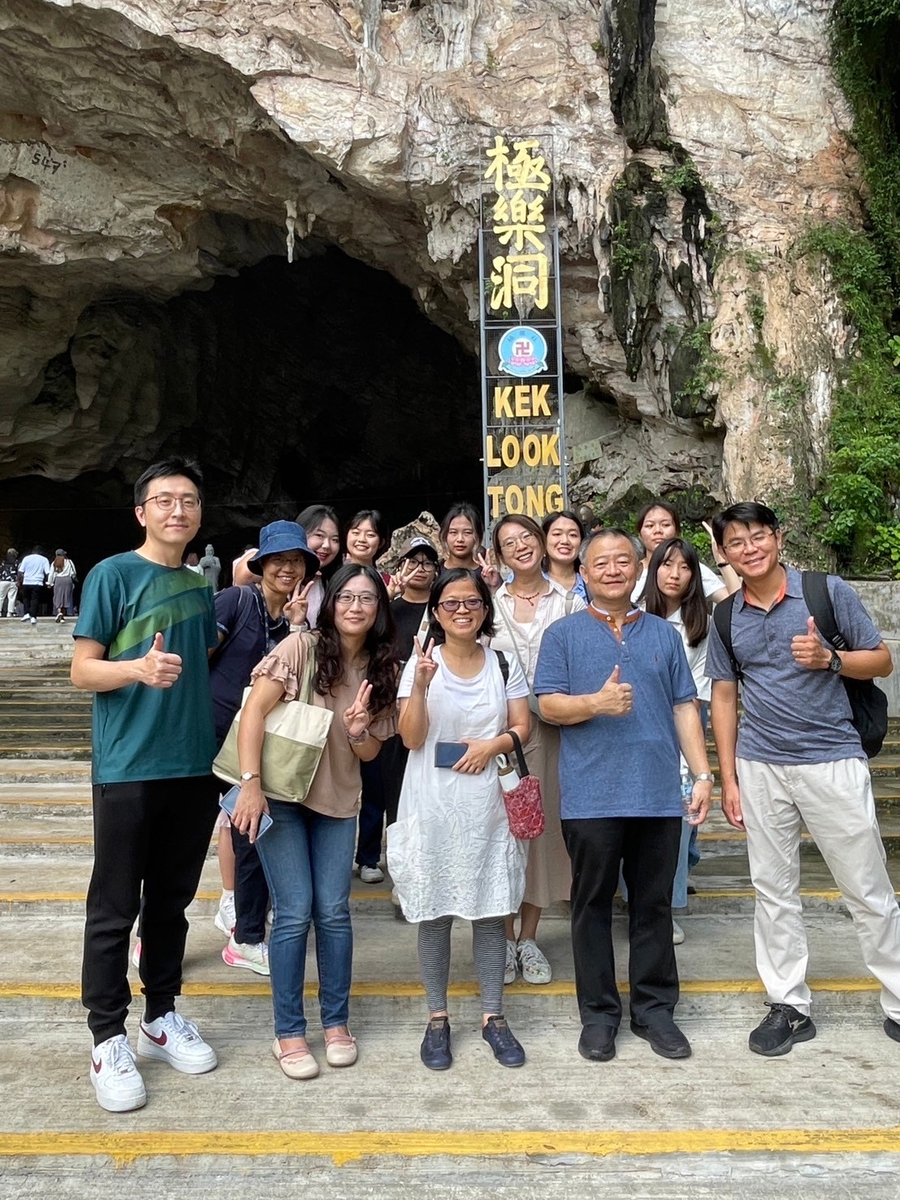
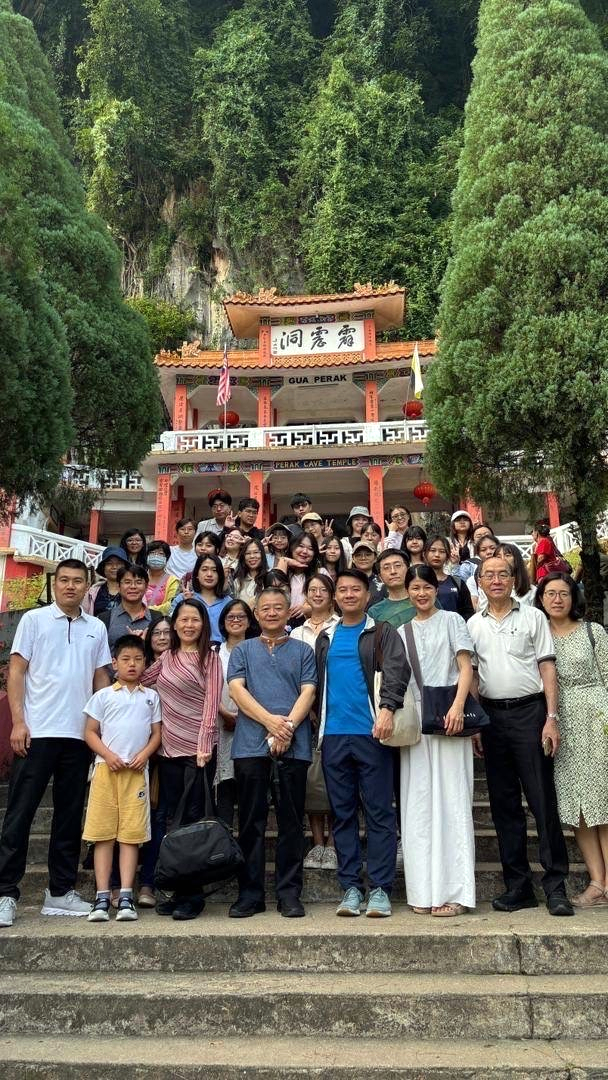
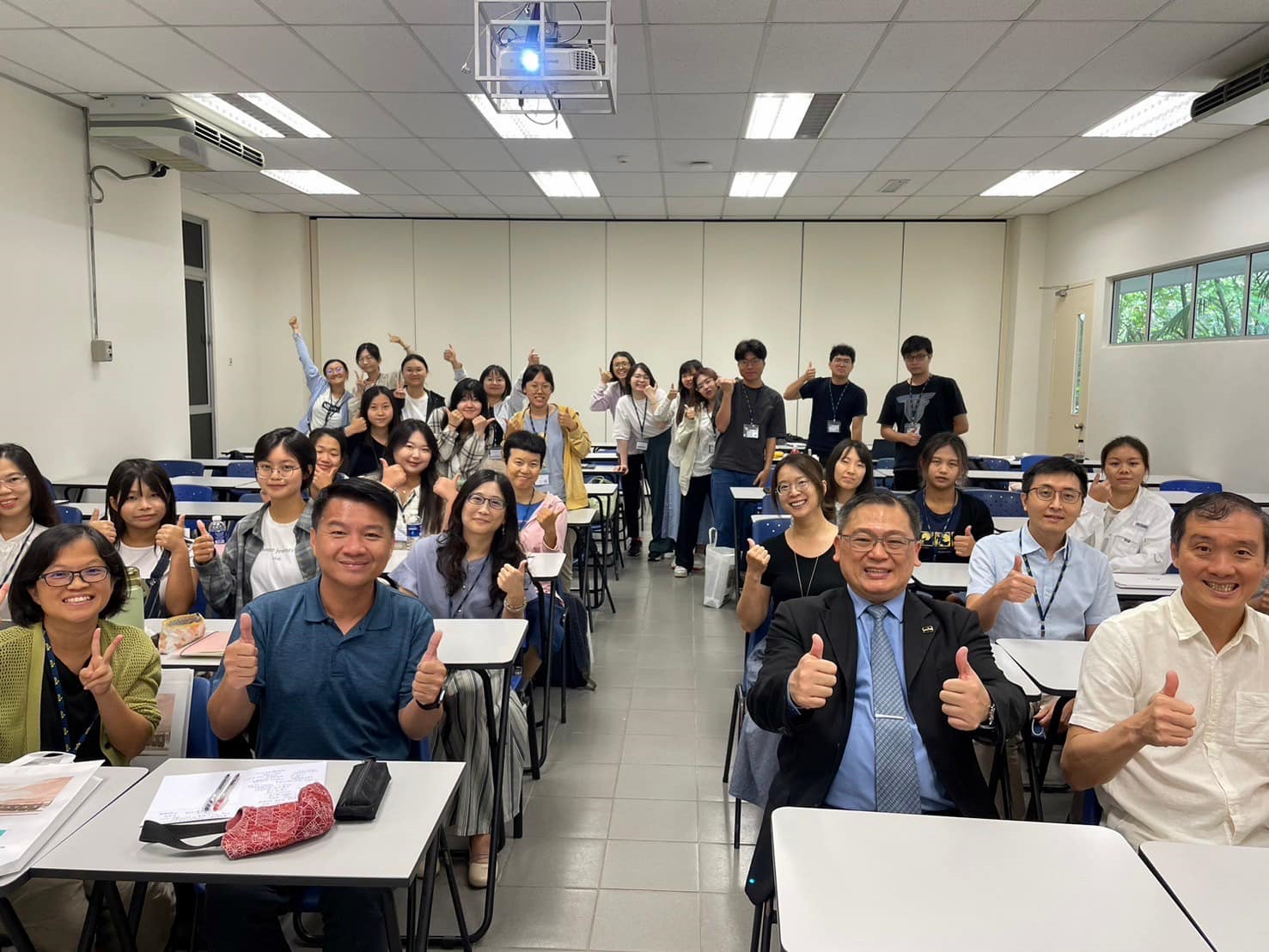
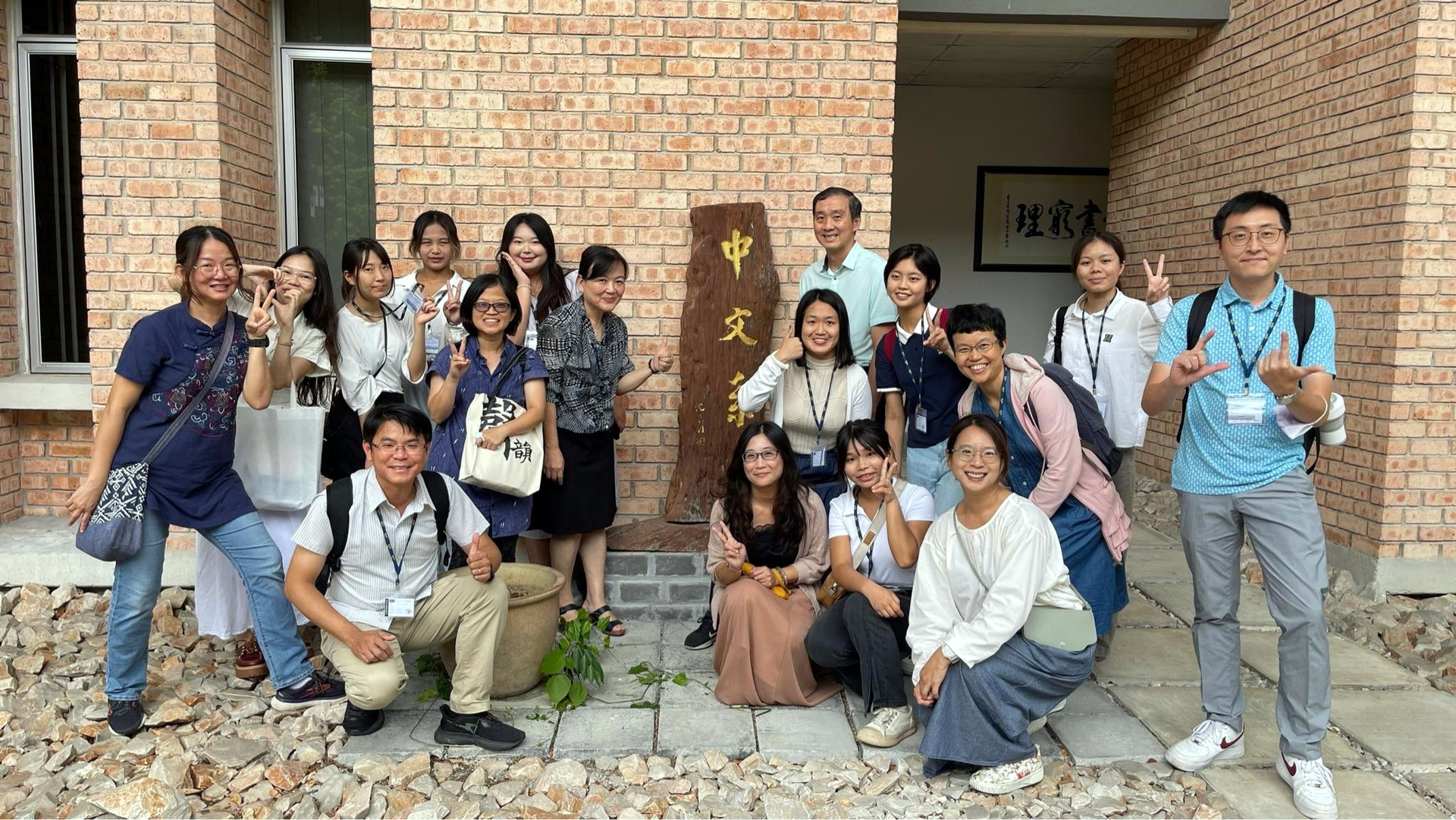
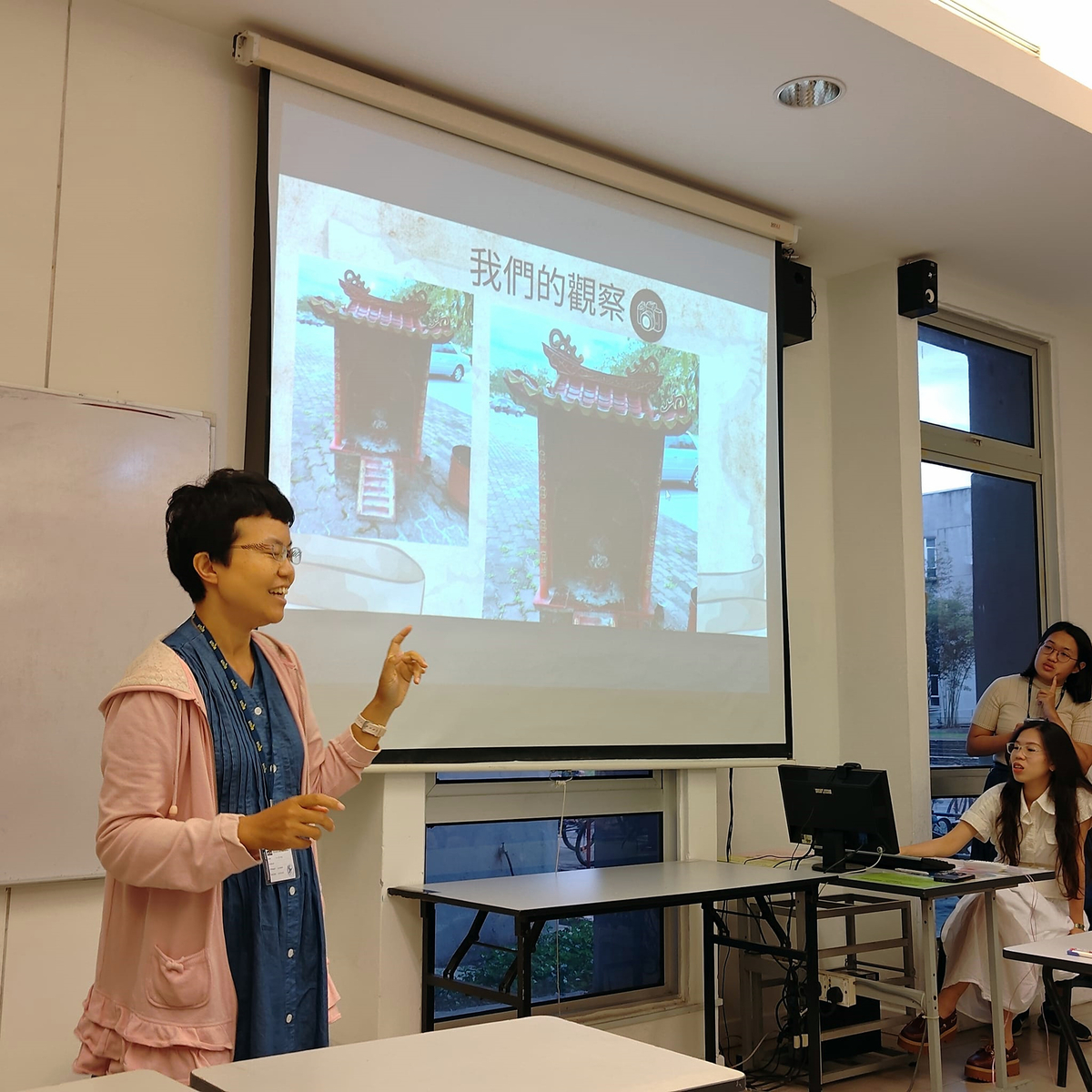
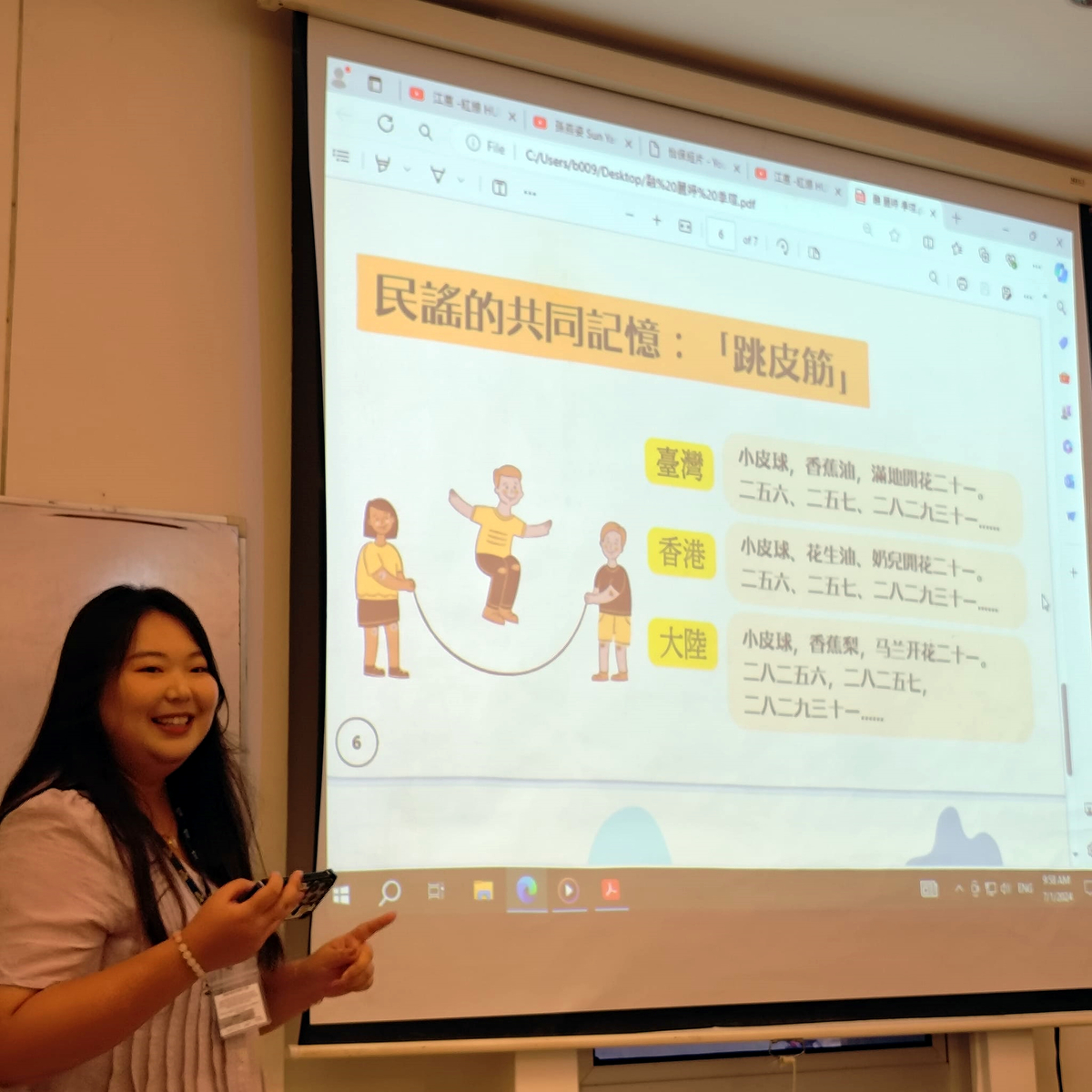
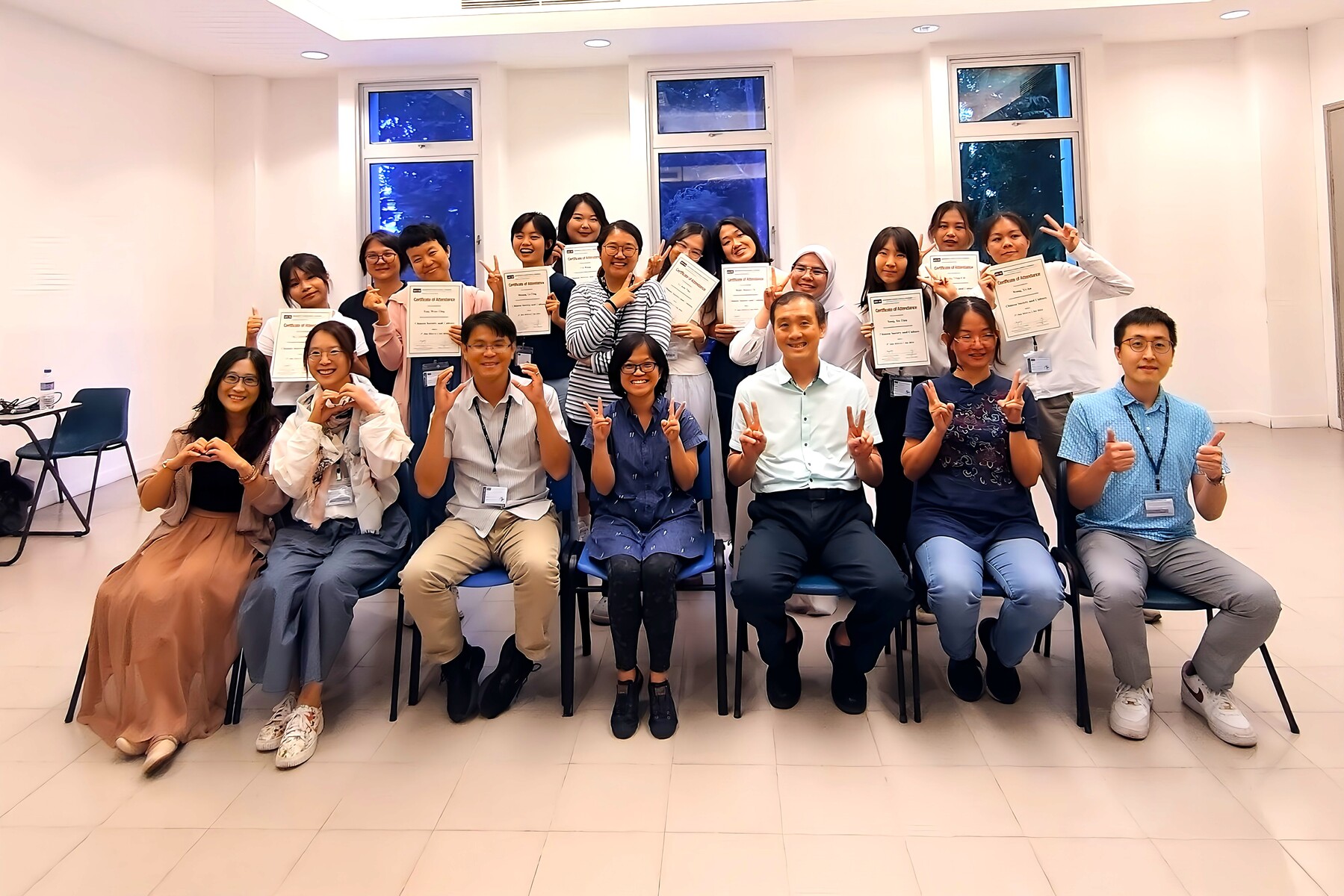
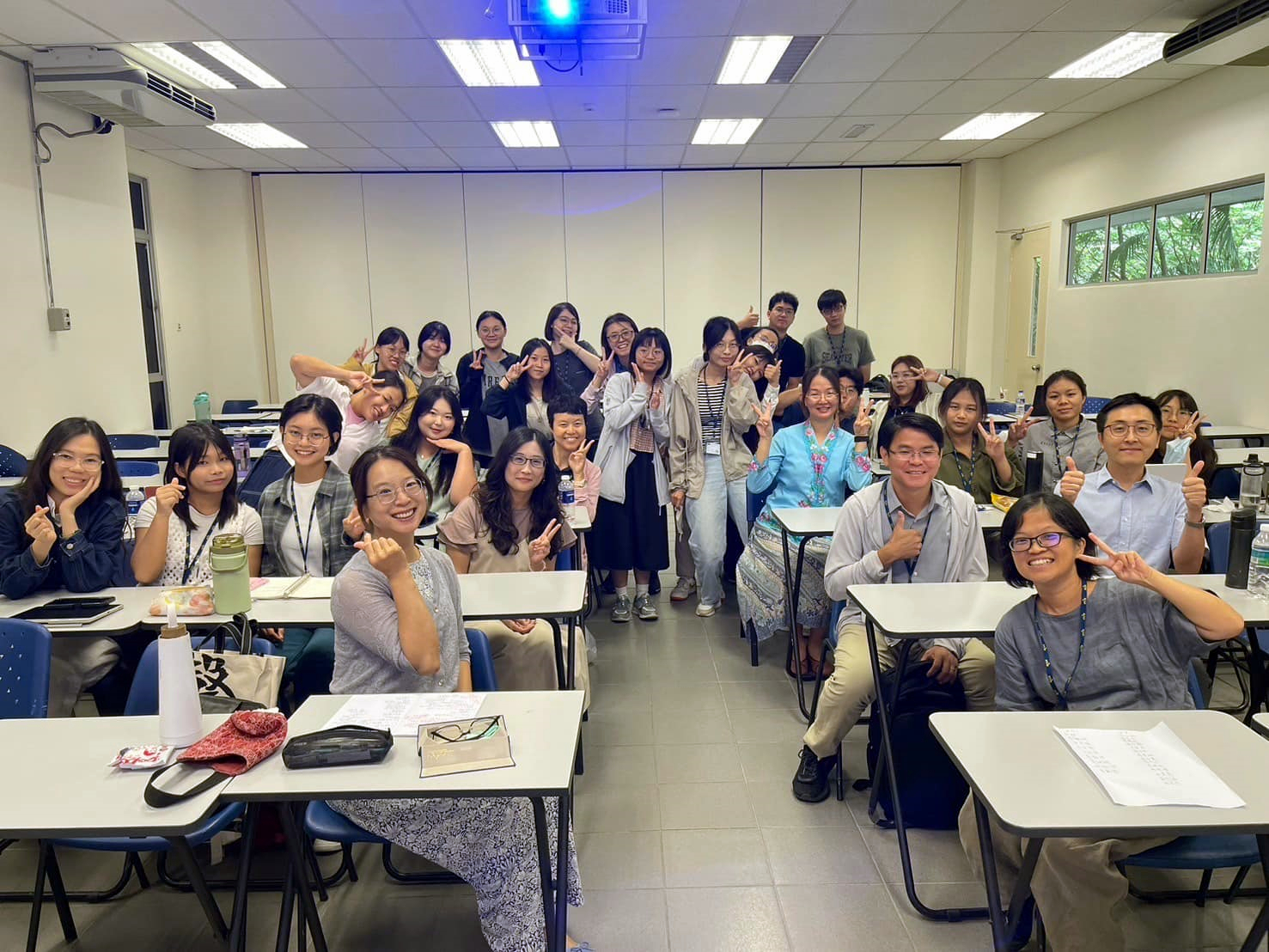
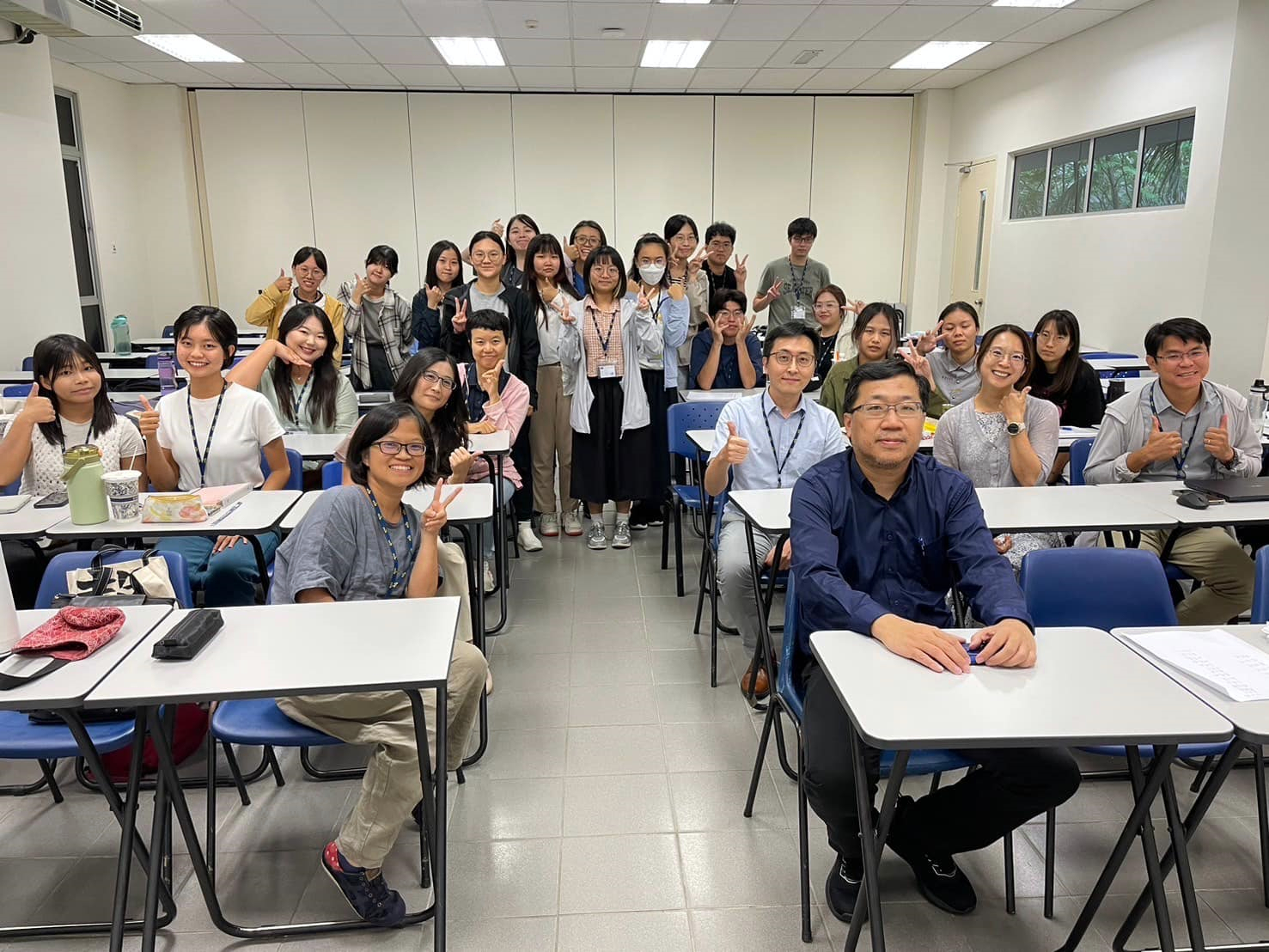
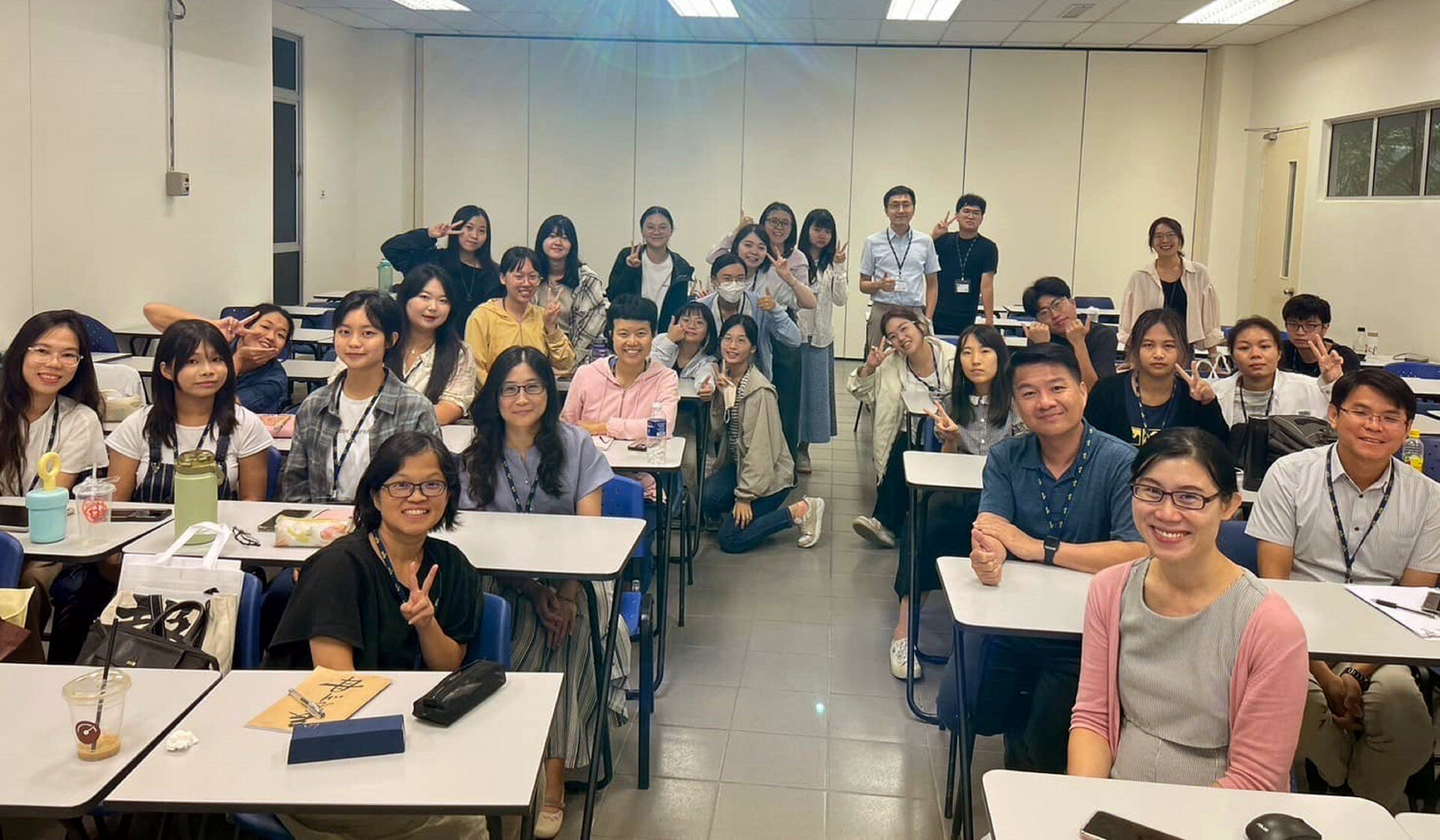
2024-10-22
To break the traditional teaching framework and enhance the international perspective, the Department of Chinese Literature of National Sun Yat-sen University (NSYSU), with the funding of the university's co-learning practice project, held the "Literary Road of Sailing to the Malay Peninsula: International Study Tour Program" in the summer and went together with the National Pingtung University (NPTU) to the Universiti Tunku Abdul Rahman (UTAR) in Malaysia, conducting international exchanges among the three universities. Through this program, students can step into the international learning field, listen to and compose different local literature and ecological information, and learn methods of editing and interpreting local narratives.
The program brought together five faculty members from the Department of Chinese Literature: Professor Chia-Lun Tu, Associate Professors Ching-Wen Luo, Chih-Ying Lin, Chih-Wei Chung, and Assistant Professor Pei-Hsuan Lai, to lead students through special topic courses to gain an in-depth understanding of Malaysia's history, society, ethnic groups, literature, and language. The program also combined practical explorations and visit activities of landscape culture, collected humanistic materials, and compiled what has been learned in class into a themed final result report, presenting students' rich experience observations and extended thinking.
The Malay Peninsula study tour program lasted six days, including four intensive four-day courses taught by faculty members from the Institute of Chinese Studies of UTAR: Teong Chuan Toh, Lih Lih Wong, Ai Boay Tan, and Chong Foh Chin. The classes were lively and interesting, allowing students to have a deeper understanding and analysis of the changes and folk narratives in the history of Chinese immigration in Malaysia, Chinese identity, belief culture, the birth and definition of Malaysian Chinese literature, Islamic policies and ethnic differences, Malay nationalism, and social outlook. This program enriched the students' knowledge and broadened their international perspectives.
In addition to classroom knowledge, faculty and students of UTAR also led NSYSU students into the "classroom of nature," visited Kek Look Tong and Perak Tong in Perak State to appreciate the spectacular limestone scenery and Buddhist-Taoist art, which combines the beauty of nature and humanity. They also visited the Kinta Tin Mining (Gravel Pump) Museum, providing a glimpse into the mining landscape of early Chinese migrant laborers. These activities aimed to enable students to jointly learn and practice exchanges and dialogues about local culture and ecological perspectives. On the other hand, it also encourages students to apply the knowledge and skills learned through practical activities to the final thematic result presentation.
At the final result presentation, NSYSU and NPTU students reported in a crossed order and shared learning with each other. The NSYSU students analyzed and made associations from the variability of Chinese folk beliefs, folk songs, the differences in language use, and local food culture in various places. Through what they learned in the classroom, the students showcased their field observations, jointly engaged in discussions and sharing, and built an excellent exchange atmosphere. Students also trained their expression and data integration skills from this activity and provided interesting thoughts and feedback.
Chi-Hsuan Tu, a first-year student in the Department of Chinese Literature, stated that this program not only deepened her understanding of Malaysian culture but also profoundly inspired her by visiting the limestone caves in Perak State and feeling the miraculous craftsmanship of nature. The harmonious atmosphere of the group made people feel full of warmth and love, which was very touching. Li-Ting Huang, a second-year student, said that the most resonant part of the study tour program was that through the contrast and comparison of folk songs, she observed the common phenomenon of variability in folk literature across different regions, which was very interesting. The cultural knowledge and content learned in the courses were all verified one by one during the subsequent field visits, such as the small Na Tuk Kong temples in the corners of the restaurants, the diverse skin colors and languages in the markets, and the planning of special immigration lanes for Malays in the airport, all leaving a lasting impression.
This study tour program also became a testimony and fond memory of the friendship forged between UTAR, NSYSU, and NPTU's Department of Chinese Literature. It is looking forward to the continued close contact among the three universities in the near future to organize international co-learning courses.
To break the traditional teaching framework and enhance the international perspective, the Department of Chinese Literature of National Sun Yat-sen University (NSYSU), with the funding of the university's co-learning practice project, held the "Literary Road of Sailing to the Malay Peninsula: International Study Tour Program" in the summer and went together with the National Pingtung University (NPTU) to the Universiti Tunku Abdul Rahman (UTAR) in Malaysia, conducting international exchanges among the three universities. Through this program, students can step into the international learning field, listen to and compose different local literature and ecological information, and learn methods of editing and interpreting local narratives.
The program brought together five faculty members from the Department of Chinese Literature: Professor Chia-Lun Tu, Associate Professors Ching-Wen Luo, Chih-Ying Lin, Chih-Wei Chung, and Assistant Professor Pei-Hsuan Lai, to lead students through special topic courses to gain an in-depth understanding of Malaysia's history, society, ethnic groups, literature, and language. The program also combined practical explorations and visit activities of landscape culture, collected humanistic materials, and compiled what has been learned in class into a themed final result report, presenting students' rich experience observations and extended thinking.
The Malay Peninsula study tour program lasted six days, including four intensive four-day courses taught by faculty members from the Institute of Chinese Studies of UTAR: Teong Chuan Toh, Lih Lih Wong, Ai Boay Tan, and Chong Foh Chin. The classes were lively and interesting, allowing students to have a deeper understanding and analysis of the changes and folk narratives in the history of Chinese immigration in Malaysia, Chinese identity, belief culture, the birth and definition of Malaysian Chinese literature, Islamic policies and ethnic differences, Malay nationalism, and social outlook. This program enriched the students' knowledge and broadened their international perspectives.
In addition to classroom knowledge, faculty and students of UTAR also led NSYSU students into the "classroom of nature," visited Kek Look Tong and Perak Tong in Perak State to appreciate the spectacular limestone scenery and Buddhist-Taoist art, which combines the beauty of nature and humanity. They also visited the Kinta Tin Mining (Gravel Pump) Museum, providing a glimpse into the mining landscape of early Chinese migrant laborers. These activities aimed to enable students to jointly learn and practice exchanges and dialogues about local culture and ecological perspectives. On the other hand, it also encourages students to apply the knowledge and skills learned through practical activities to the final thematic result presentation.
At the final result presentation, NSYSU and NPTU students reported in a crossed order and shared learning with each other. The NSYSU students analyzed and made associations from the variability of Chinese folk beliefs, folk songs, the differences in language use, and local food culture in various places. Through what they learned in the classroom, the students showcased their field observations, jointly engaged in discussions and sharing, and built an excellent exchange atmosphere. Students also trained their expression and data integration skills from this activity and provided interesting thoughts and feedback.
Chi-Hsuan Tu, a first-year student in the Department of Chinese Literature, stated that this program not only deepened her understanding of Malaysian culture but also profoundly inspired her by visiting the limestone caves in Perak State and feeling the miraculous craftsmanship of nature. The harmonious atmosphere of the group made people feel full of warmth and love, which was very touching. Li-Ting Huang, a second-year student, said that the most resonant part of the study tour program was that through the contrast and comparison of folk songs, she observed the common phenomenon of variability in folk literature across different regions, which was very interesting. The cultural knowledge and content learned in the courses were all verified one by one during the subsequent field visits, such as the small Na Tuk Kong temples in the corners of the restaurants, the diverse skin colors and languages in the markets, and the planning of special immigration lanes for Malays in the airport, all leaving a lasting impression.
This study tour program also became a testimony and fond memory of the friendship forged between UTAR, NSYSU, and NPTU's Department of Chinese Literature. It is looking forward to the continued close contact among the three universities in the near future to organize international co-learning courses.
Click Num:
Share
